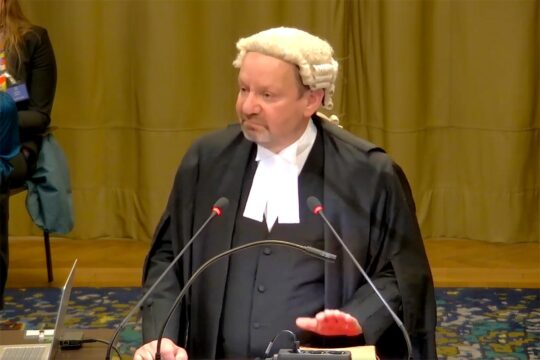Peruvians voted Sunday in a close-fought election on whether Keiko Fujimori, the daughter of an ex-president jailed for crimes against humanity, will be their new leader.
Last-minute polls showed Fujimori, 41, tied with her center-right rival, former Wall Street banker Pedro Pablo Kuczynski, 77.
A beaming Fujimori waved and hugged supporters as she voted at a school in central Lima. Armed police escorted her through a crowd of television cameras and fans seeking selfies.
The election has forced voters to confront the South American nation's dark past. A 1980-2000 civil conflict involving leftist insurgents killed an estimated 70,000 people.
Many mistrust Keiko Fujimori because her father Alberto is in jail for corruption and the slaughter of alleged terrorists in the 1990s.
"We want no more dictatorships. There was a lot of repression and a lot of people died and disappeared," said Enrique Castillo, a 61-year-old queuing to vote in Lima.
Others hope Keiko Fujimori will, like her father, be tough in fighting a wave of violent crime in Peru, a major cocaine-producing country.
"Her father did good things too against crime," said administrative worker Silvia Cuadros, 45, waiting in line to vote for Fujimori at a school in central Lima.
"Our parents may make mistakes but that does not mean their children will do the same."
- Unite Peru -
Fujimori and Kuczynski spoke to television crews at their traditional election-morning breakfasts with their families.
"Go out and vote, do it early and let us do it united, thinking of our country," Fujimori said.
"Today is a day of celebration and the winner should be Peru."
Kuczynski, meanwhile, called for a "government of unity."
"Vote happily and think of democracy and dialogue. That is the only thing that will save us from corruption, drug-trafficking and turbulence," he said.
Both candidates are right-leaning, US-educated politicians. Kuczynski also studied in Britain in the 1950s.
They have both vowed to fight crime and create jobs in the nation of 30 million people.
Fujimori is seen as more populist and socially conservative.
"She is the only one who has signed a commitment to oppose gay marriages. And with her there will be less crime," Cuadros told AFP.
Former economy minister Kuczynski has a long career in business and finance.
"He has a lot of experience. Keiko has never worked," said Castillo, who runs a business exporting clothes.
"We want security and stability so that foreign investment will come."
- Tied in polls -
Two opinion polls on Saturday showed Fujimori had lost her earlier lead, with the candidates now locked in a technical tie.
A survey by Ipsos gave Kuczynski 50.4 percent of the vote to 49.6 percent for Kuczynski. Pollster GfK gave him 51.1 percent to 48.9 percent for Fujimori.
"The gap could widen... if Kuczynski keeps rising," said Alfredo Torres, president of Ipsos Peru.
"Or it could reverse if Popular Force activists manage to boost votes in their favor in the interior of the country."
The campaigns have been stained by allegations of corruption and irregularities.
Opponents tried to have Keiko Fujimori excluded for alleged vote-buying.
The electoral board dismissed the case against her but expelled several other candidates.
Both runoff candidates are seen as pro-market in their plans to further Peru's economic growth.
Peru's economy is outperforming most of its neighbors. It is a big exporter of copper, gold and other minerals.
But growth has declined under outgoing President Ollanta Humala.
The International Monetary Fund forecasts Peru's economy will grow by 3.7 percent this year.
Polling stations are scheduled to close at 2100 GMT. First official results are expected around 0200 GMT on Monday.


